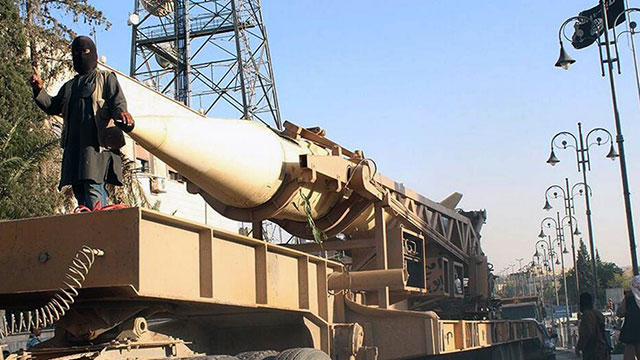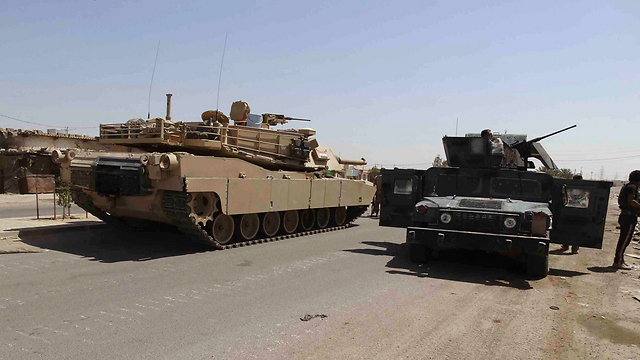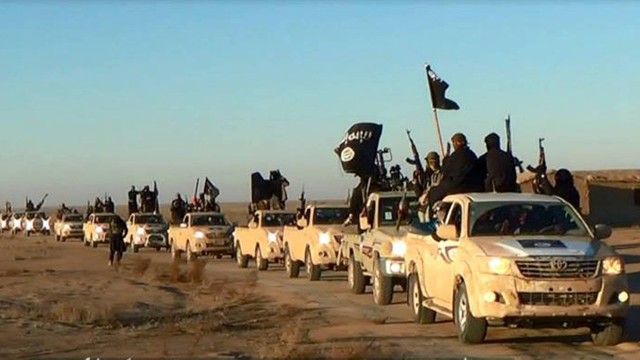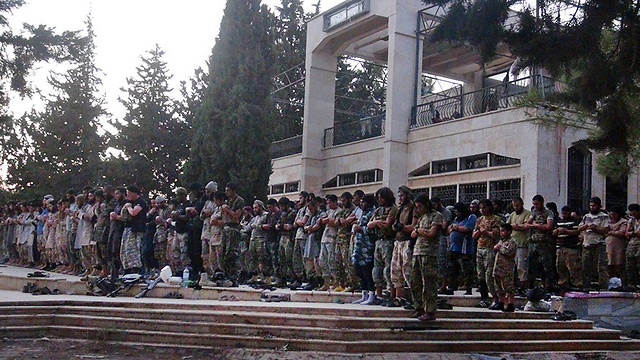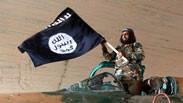
How Islamic State become the world's richest terrorist group
Sex slaves, extortion and black market oil are just some of the ways that the terrorist organization is seeing millions pour into its coffers every day.
The Islamic State terrorist organization is known primarily for its brutality, mass executions, beheadings, rapes and kidnappings. This calculated cruelty is aimed at consolidating power in the areas the group has occupied, for recruiting new jihadists and proving that it is not a fleeting phenomenon. But the primary cause for concern among Western intelligence organizations is precisely the group's economic base, which has allowed it to solidify its hold in swathes of Iraq and Syria.
The Islamic State is now the richest Islamic terrorist group in the world. The organization, which once relied on handouts from wealthy donors in the Persian Gulf, has in the past year transformed into a full-on economic enterprise, which funds itself through sophisticated methods. Experts believe the group now posses some $2 billion in capital, with a daily revenue of revenue of between $3 million and $6 million.
The extremist group's resources exceed that "of any other terrorist group in history," a US intelligence official told the Associated Press news agency last month.
The biggest headache for Western intelligence organizations is the group's money transfer system. The Islamic State does not pass its money through normal bank accounts, but rather through a network of business people who transfer suitcases full of cash to various points via intermediaries.
According to some intelligence reports, one-third of the organization's daily income comes from the sale of water, electricity and other social services to the local populations. In Iraq, the Islamic State seized 40 percent of the country's wheat production and bakeries, thereby enabling to fix the price of bread and rake in massive profits. In the past six months, the organization has also taken over 11 gas fields and oil wells in Syria and Iraq.
A proportion of this income is spent on fighting the Iraqi army and Kurdish forces, although the group has managed to seize control of more oil fields. Through an effective system of smuggling, the Islamic State is successfully selling tens of thousands of barrels oil per day on the black market, to buyers in Syria, Iran, Turkey and the Kurdish region, and even Jordan. Experts believe that the group is selling 25,000-40,000 barrels of oil per day, earning them at least $1.2 million.
Other estimates put the group's daily income at $3 million for the sale of oil. Most of the oil is smuggled by truck to customers across the various borders, with indications that the Islamic State is bribing border guards to take the barrels across the frontiers. According to some reports, the terrorist organization level is asking some $60 per barrel, far cheaper than on the official market, where a barrel of crude oil now costs approximately $100.
The group is also making hundreds of millions more from the sale of the antiquities it has looted in Iraq and selling on the black market in Turkey. Millions of dollars more pour into its coffers from the sale in slave markets of hundreds of kidnapped women, most of them members of other communities, such as Christians and Yazidis. Even young boys and girls have been abducted and sold to the highest bidder as sex slaves. Other reports state that women are also sold as sex slaves or "given" to Islamic State fighters as a gift for outstanding service.
The group also extorts funds from residents of areas it has seized in the form of protection money, called an "Islamic tax", which has been bringing in another $8 million per month.
"Its cash-raising activities resemble those of a mafia-like organization," another US intelligence official told AP. "They are well-organized, systematic and enforced through intimidation and violence."
The group has also raised millions from ransoms demanded for the release of hostages. A year ago, several French journalists were released amid reports that the French government had paid millions of euros for the exchange, via third-party brokers.
When the organization seized Mosul, the second largest city in Iraq, six months ago, it also seized the country's central bank, stealing tens of millions of dollars. At the time, it was believed that some $425 million had been taken by the organization.
Even so, much of the Islamic State money comes in donations from wealthy supporters in the Gulf and other Arab countries. It is thought its donors even include sheikhs and princes in the Saudi and Qatar royal families. To encourage donations, the organization launched a social media campaign entitled "Run the jihad with your money". Soliciting donations, the group claims that, "For $2,500, we send another warrior to battle."










